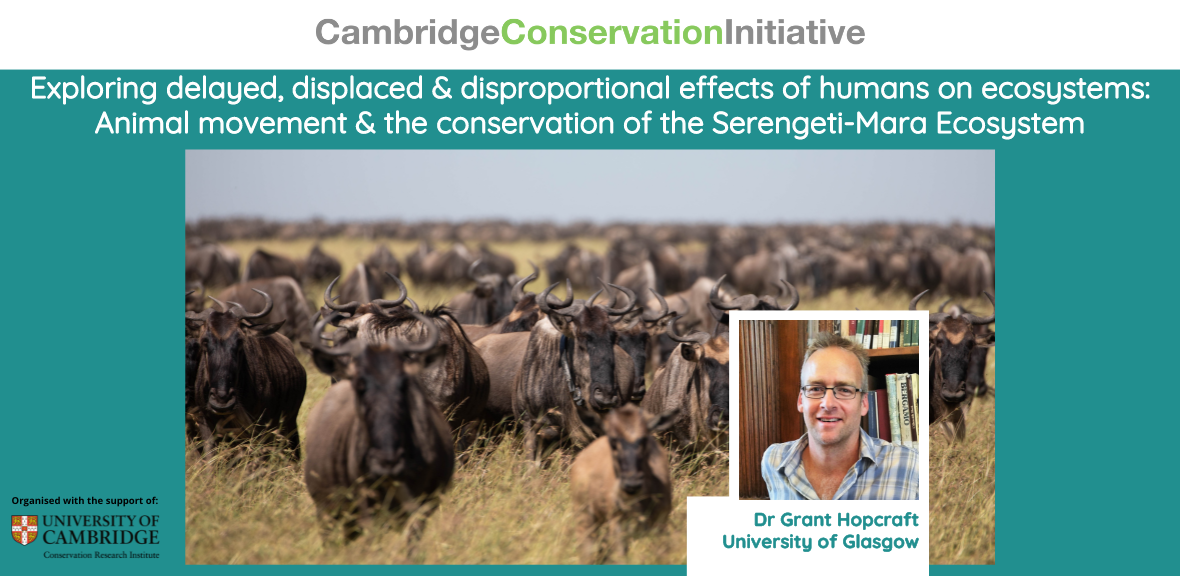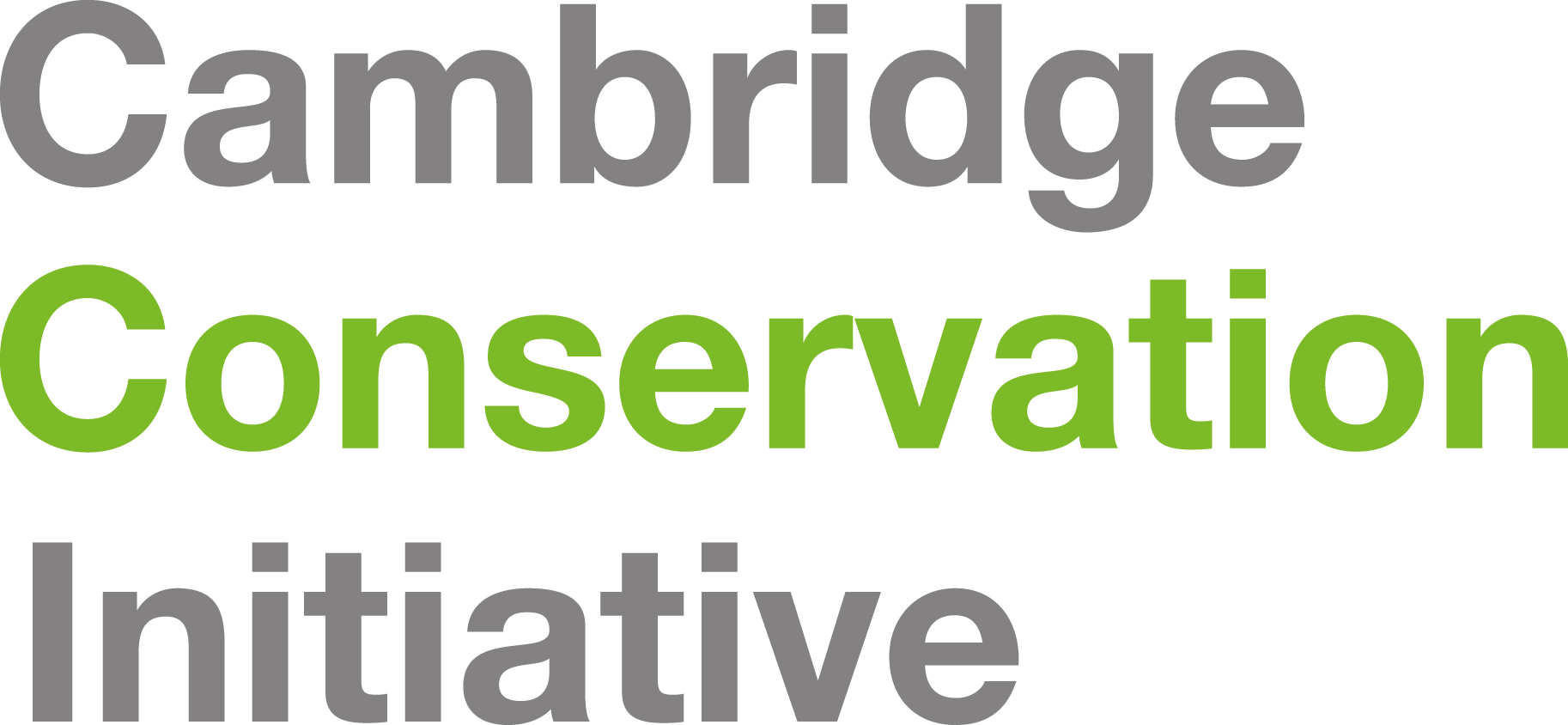
CCI Conservation Seminar - Dr Grant Hopcraft, University of Glasgow
Exploring delayed, displaced, and disproportional effects of humans on ecosystems: Animal movement and the conservation of the Serengeti-Mara Ecosystem
Sign up to receive the Zoom link here: https://forms.office.com/e/a8kjDjTY38
Abstract:
Underpinning the biodiversity crisis is the unprecedented loss of ecosystems and their functionality. In this talk I explore the ways in which humans are having delayed, displaced, and disproportional effects on the Serengeti-Mara ecosystem. I use the movement of animals as an indicator of an ecosystem under pressure. Typically, animal movement studies combine GPS data with environmental factors to understand the how animals decide whether to remain or depart from an area. These behavioural responses are the product of calculated decisions in which animals weigh up the availability of resources and risks against their internal requirements, however estimating the physiological condition of free-living animals is challenging. In this talk I present some of our work from Serengeti in which we use metabolites deposited in the tail hair of GPS-collared migratory wildebeest to recreate their physiological timelines of starvation and pregnancy cycles. This approach provides a deeper understanding of how the internal state of the animal (such as stress and hunger) alters their behavioural decisions about whether to stay or move. These approaches allow us to explore how animals react to human activity both at the edges of ecosystems (where migratory animals interact with people) and in the core protected areas (where migratory animals interact with tourism infrastructure). By linking the movement of animals to their internal state we gain deeper insights about which management interventions are working and how animals are responding both physiologically and behaviourally to human activities. The next challenge is to integrate these metrics with long-term demographic responses, such as survival and population viability.
Please join us for refreshments in the Common Room afterwards.
Bio:
- Professor of Conservation Biology at the University of Glasgow where I work on aspects of applied ecology and coordinate an MSc program on the Conservation and Management of African Ecosystems
- I currently lead the Serengeti Biodiversity Program and coordinate the annual cross-border management meetings for the Greater Serengeti-Mara Conservation Society
- I have been working in the Serengeti ecosystem since 1996, and was involved with the first deployment of GPS collars on wildebeest in 1999 with Frankfurt Zoological Society. I continue to run a long-term GPS collaring program on wildebeest, zebra and eland in the Serengeti.
- I set up the Serengeti GIS and Ecological Monitoring Program and the Ranger Based Monitoring program with Tanzania National Parks and the Frankfurt Zoological between 2002-2009
- I act as scientific advisor to Tanzania National Parks and Frankfurt Zoological Society as well as volunteer advisor to UNESCO World Heritage, UNEP Convention of Migratory Species and several other East African-focussed organizations
- Academic record:
- MSc with Craig Packer and Tony Sinclair on the Serengeti Lion Project through the University of British Columbia (2002)
- PhD with Han Olff and Tony Sinclair studying the migration of Serengeti wildebeest and zebra through the University of Groningen (2010)
- Post-doc at the University of St Andrews with Len Thomas (2010-2012)
- Research Fellow at the University of Glasgow with Dan Haydon (2012-2015)


